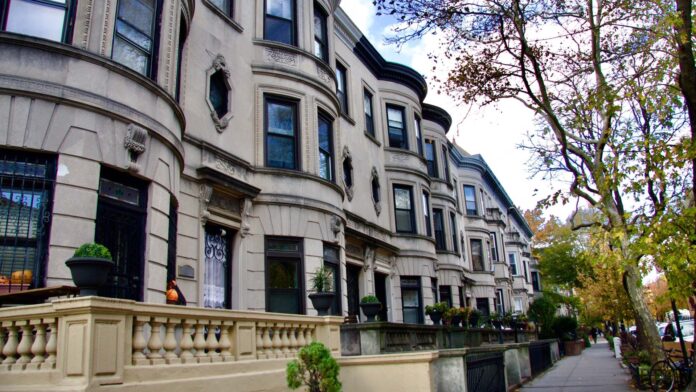Key Highlights
- City planners, developers and local officials weigh in on how COVID pandemic may change NYC’s housing markets
- Economic collapse due to pandemic could reshape NYC’s real estate industry from luxury to affordable to public housing
New York City’s real estate is everyone’s business. According to the Real Estate Board of New York and labor statistics, the industry generated close to $32B in tax revenue last year, some 53% of the city’s coffers, and employed more than 275,000 people.
Despite experts predicting that New York will rebound as it has before during the Great Recession, September 11, the 1970’s fiscal crisis, the current situation in New York could well be called unnerving or alarming or daunting. Here are just some of the statistics that set the stage for NYC’s current state of affairs:
- Residential real estate sales plummeted -40% in July and -57% in August compared to 2019, according to NYC’s Comptroller’s Office
- Commercial real estate sales were -28% in July and -43% in August compared to 2019
- Unemployment is still 14% after cresting at 20% in June and July
- Hotel occupancy rate is 39%
- Some 33% of NYC’s 240,000 small businesses may never reopen while some iconic retailers are bankrupt
The New York Times asked a group of 50 real estate executives, brokers, former senior city officials, affordable housing advocates, and urban planners what might happen in real estate over the next year or two.
The Real Estate Market?
Rents and sale prices are expected to drop -7.7% to -11.3% by the middle of 2021 compared to the first quarter of 2020, according to CoStar Advisory Services. (For rents, read Manhattan Median Asking Rent Drops Below $3,000)
For sales, discounts less than 10% are widespread but prices have yet to plummet except in the ultra-luxury tier of the market. Buyers waiting for fire sales may be disappointed as the market was already into price corrections for three years prior to the COVID pandemic, according to Nancy Wu, an economist with StreetEasy.
More than 60% of the +20,000 condo units that have come to market since 2018 are unsold citywide, according to Kael Goodman, chief executive of Marketproof. This represents some $33B in unsold apartments and some 2,000 of these units haven’t even begun sales. Some scenarios may include condo conversions to rentals or restructuring loan obligations to avoid foreclosure.
Affordable housing is in dire straits due to New York’s pandemic economy. This summer, The Department of Housing Preservation and Development that funds and maintains much of the city’s affordable housing resources received a 40% cut to its capital funding over the next two years due to the pandemic whipping out nearly 50% of tax revenue. This could translate into 21,000 less new/preserved affordable housing units and 34,000 less jobs in construction related industries. Also the New York City Housing Authority, landlord to one in 15 New Yorkers, needs $40B to “fix” mold, lead abatement and deferred maintenance in its 170,000 apartments across 2,252 buildings.
According to Jonathan Miller, CEO of Miller Samuel, “The tether between work and home just got a lot longer.”
With demand for suburban office space outpacing urban cores, according to a report from Cushman & Wakefield, and +40% of US bank executives planning to reduce their office footprint to accommodate remote working, according to the consulting firm Accenture, the shift from increasing buyer demand beyond city center to more affordable markets is already increasing. How lasting these “shifts” continue remains to be seen.
Scott Rechler, currently the chief executive of RXR Realty and chairman of the Regional Plan Association and former vice chairman of the Port Authority of New York and New Jersey, said, “I want to remind myself that our prosperity isn’t guaranteed. We need to continually maintain the quality of life that drives people to continue to want to live and work in New York City.”
(Obviously, what happens in New York’s real estate market does not stay in New York. Multiple major city centers may experience similar happenings.)
Thanks to The New York Times.
Also read: Nearly 900,000 Filed New Unemployment Claims Last Week, Head’s Up – Amazon Doubling Down on Office Workers, Pandemic Accelerating Changes in Residential Real Estate That Percolating for Years

























